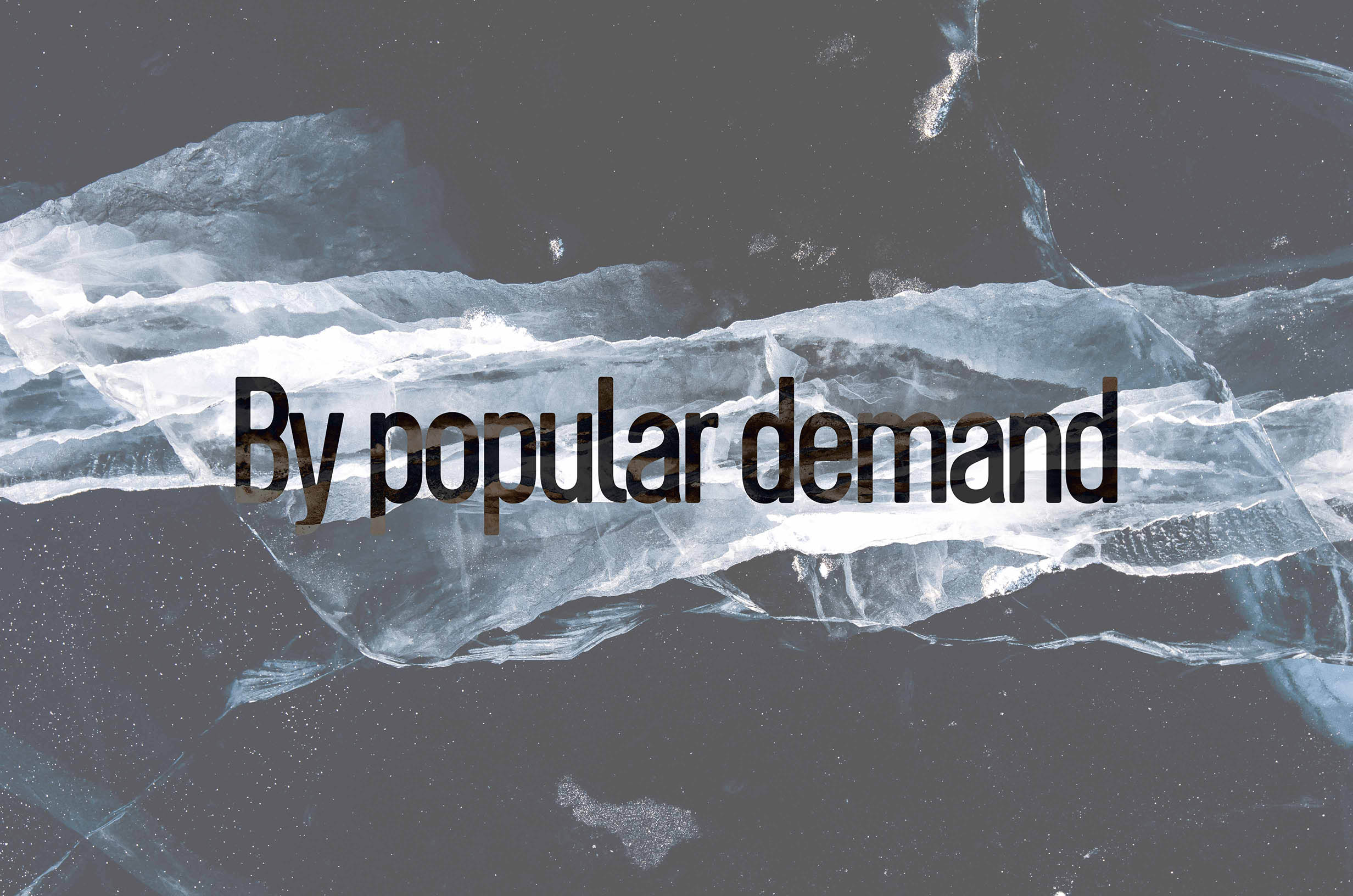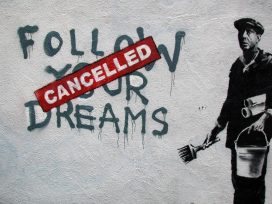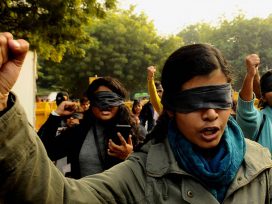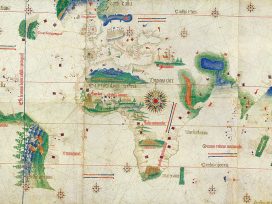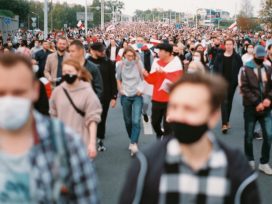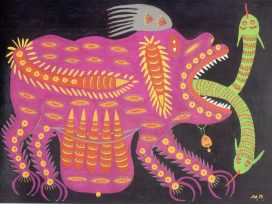Here are some of the Eurozine Team’s personal favourites from this year’s publishing: reflecting on racial conflicts and gender relations, digging into urban soil and organizing tenants, being tired of video conferences and, inevitably, reckoning with death.
Beyond racism
- Achille Mbembe, The weight of life
In a rush to minimize the recession following COVID-19, some hold their economies dearer than the saving of lives. But prosperity isn’t the indefinite depletion of bodies and resources. It is through the satisfaction of basic needs that we will restore the dignity of all. - Deva Woodly, An American reckoning. The fire this time via Public Seminar
The Movement for Black Lives has influenced public opinion about racism in American life, changed policy, helped reduce police violence and reshaped the politics of social justice. Finally, the wider public is coming to understand the need for a radical political transformation.
Read more on racism and colonialism here.
Gender impossibilities
- Gaby Zipfel, Liberté, égalité, sexualité via Mittelweg 36
Despite ’60s slogans, making love does not stop one from making war. On the contrary: violence and sexuality are intertwined in dominant masculinity, and the hurt this causes is often denied and unaccounted for. How should we interpret the ambiguous links between lust and hostility? - Nikita Dhawan, (Im)Possible solidarities. Transnational feminist politics and the erotics of resistance via Culture & Démoctratie
Can street protests communicate justice for all? Political theorist Nikita Dhawan criticizes global movements where only ‘certain individuals are well positioned to express their aspirations’.
Read more on gender and feminism here.
Trapped in technology
- Geert Lovink, The anatomy of Zoom fatigue
Covid has flooded our lives with online encounters and interactions. We work, minding our image on screen, or struggle to socialise in a hall of mirrors. - Christina Gratorp, The materiality of the cloud. On the hard conditions of soft digitization via Fronesis
The Internet isn’t immaterial: storing the seemingly abstract ones and zeros requires actual, mechanical work. Those who provide the material means are continuously underpaid, thus ‘growth’ and ‘development’ at the centre result in energy depletion in the periphery. - Caroline Molloy, A computer is all you need. How Big Tech – and especially Digital Health –is eroding the social contract via openDemocracy
Who is really benefitting from Big Tech’s increasing involvement in public services such as health? And does a focus on the privacy implications of the Big Tech revolution cause us to overlook its social impacts?
Read more on technology here.
Pandemic on the fringes
- Refugees in the pandemic: our miniseries on the early handling of COVID-19 threat at Europe’s most crowded refugee camps and settlements.
- Daniel Trilling, Asocial distancing: The mistreatment of Roma and homeless people in the corona crisis expanded, many using the safety concerns as an excuse for further persecution.
- Boglárka Fedorkó, Selling sex in the pandemic: The global health threat tore up old wounds of the scapegoating during the early HIV/AIDS epidemic, but also revealed grassroots power of community organizing .
- Jemimah Steinfeld, Safer social scenes via Index on Censorship: LGBTQIA+ dating apps were abused under the disguise of public health measures.
- Atreyee Sen, Pandemic rape in India via L’Homme: Staying home may reduce infections, but isn’t necessarily safe for everyone: women with violent partners are facing an increased risk of abuse during lockdown. Solidarity is crucial. Read more
Read more from our corona coverage here.
Means of survival
- Kate Brown, Resurrecting the soil via Vikerkaar
What can the history of the soil tell us about modernity and its ills? An experiment in urban gardening sets Kate Brown thinking about the consequences of the western world’s perennial misuse of the land – and how to return life to today’s extinct terrains. - School of Echoes Los Angeles, La comuna o nada: Building an autonomous tenants movement in Los Angelesvia dérive
Tenants are the new proletariat. Rents are among the main sources of global capital accumulation, and tenants’ vulnerability is increasing. Using their shared experiences as a basis for struggle, School of Echoes tells the story of organizing against gentrification.
Read more on ecology and housing here.
The fascism debate
Fascism for our time?
‘Fascism’ has entered America’s political lexicon as a way to understand and oppose the rise of the far-right. Trump’s polemics against the left have also propelled the label ‘antifascism’ into the mainstream. But are we really seeing a US fascism? What baggage does the concept of ‘antifascism’ carry?
Read more from Eurozine’s collaborative focal point with Public Seminar.
Reflections
- Krzysztof Michalski, The quietness of death via and Gazeta Wyborcza and the Institute for Human Sciences
In moments of crisis, reflecting on loss can be especially hard. Philosopher Krzysztof Michalski’s meditation on an unexpected death lends gravitas to universal questions of belief, awareness and fear in times of transition. - Ece Temelkuran, The paper pain via the European Cultural Foundation
Ece Temelkuran describes her deep unease at being referred to as an ‘exile’ and how, despite that public role, she shares a fundamental experience with the unnamed refugee.
This article is part of our series of thematic reading lists. Check out our other Topicals here.
Published 29 December 2020
Original in English
First published by Eurozine
© Eurozine
PDF/PRINTNewsletter
Subscribe to know what’s worth thinking about.
Related Articles
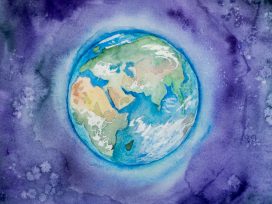
Virtue and willingness
Topical: Earth Day reads
The urgency of the climate crisis demands individual ethics as much as a willingness to cooperate with power. But reconnecting humans with the natural world also forces us to revisit the promises of ever-growing efficiency and a culture of exploitation.
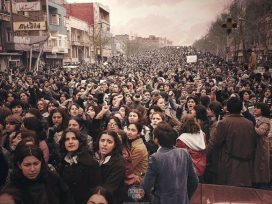
Bang on your pots and pans
Topical: Women’s Day Reads
One year in and the pandemic has hit women particularly hard: decades’ of advancement in the workplace and academia are under threat; domestic violence has skyrocketed. And yet, in institutional politics, women seem to be growing in numbers and influence. This year’s International Women’s Day ‘challenge’ is one of recovery.
